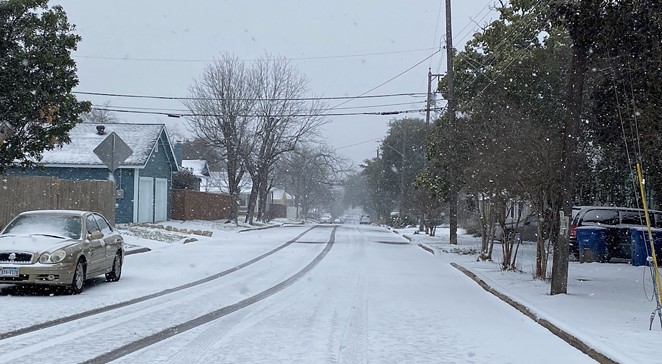
Sanford Nowlin
Millions of Texans went without power last month as the state's electrical grid buckled under the strain from the prolonged cold front.
"The natural gas system could not meet demand," the authors of the 101-page study wrote. "The production losses stemmed principally from freeze-offs, icy roads and electric outages to the equipment used in the natural gas industry."
UT issued the study Tuesday, the same day the state's health department revised its official death toll from the disaster, raising it to 210 from 151. However, at least one data-driven report suggests the actual number may exceed 700.
The report also comes weeks after the GOP-controlled Texas Legislature passed new laws aimed at strengthening the state's electrical grid. The storm left millions without power, some for days.
Critics argue those new measures treat natural gas providers with kid gloves. For example, there's no timeline for when the state will begin enforcing its winterization requirements, and much discretion is left up to regulators as to which facilities are required to upgrade.
Further, Republican Gov. Greg Abbott declined to call for more grid reforms when he set priorities for the Lege's current special session.
For the study, UT researchers looked at the performance of 27 natural gas facilities during the freeze and found that as temperatures dropped, the operators' pipelines and equipment ceased to function, resulting in an 85% falloff when power companies needed the fuel.
Indeed, 18 of the natural gas facilities it studied had "zero output" on February 17, the peak of the storm.
In addition to their human cost, the failures resulted in massive charges for the state's power generators, according to the report. CPS Energy, for example, tallied losses on natural gas fuel purchases of as much as $850 million, and losses on purchased power costs of as much as $250 million.
The new study, commissioned by the Texas Public Utility Commission, follows a separate report issued in June by former commissioners of the regulatory body.
That analysis warned that that lawmakers hadn't done enough to prevent future power failures or deal realistically with climate change. It recommended 20 additional policy changes, including stronger enforcement measures to ensure gas companies carry through with weatherization.
The UT report stops short of policy recommendations and calls for further study of the February outages. Additionally, it notes that some details of how natural gas providers interact with the Electrical Reliability Council of Texas, the grid's operator, will likely "never be known given the confidentiality" of the companies' contracts.
Stay on top of San Antonio news and views. Sign up for our Weekly Headlines Newsletter.

